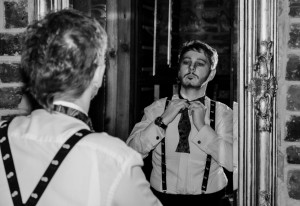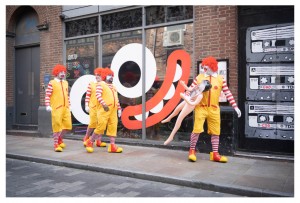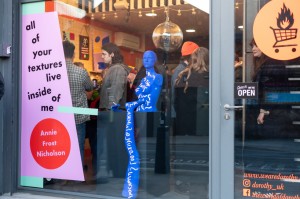“If we don’t defend life it becomes without value” — The Big Interview: Lotte van den Berg, Malta Festival
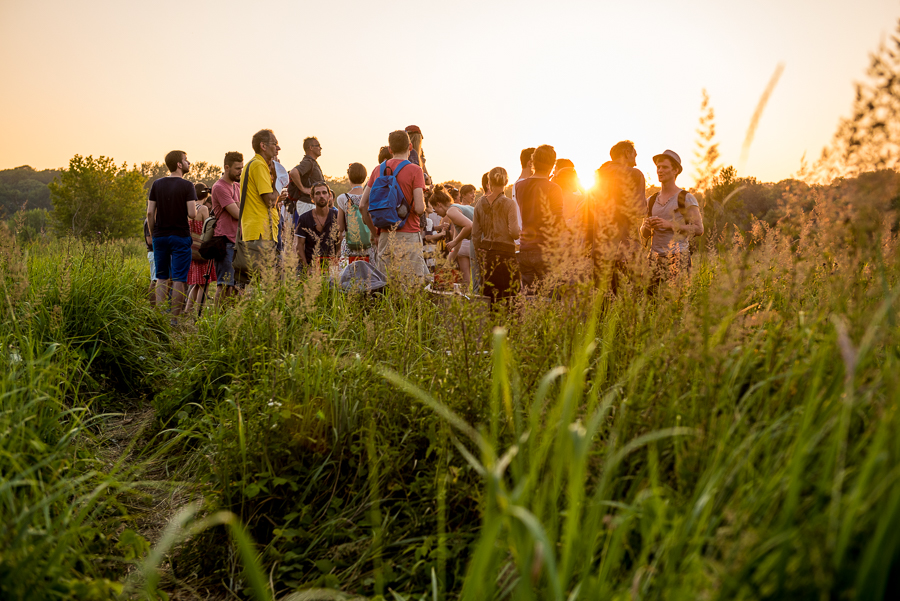
Making theatre that questions our passive roles in society, politics, and life itself, Lotte van den Berg is no stranger to provocative arts production. She speaks to Emma Sumner about violence, Brexit, and getting the public more involved in making…
It is said that without the spectator there is no theatre. But who is the spectator and what is their role? This is the question presented to those who attended this year’s Malta Festival in the Polish city of Poznań , whose programme aims to disrupt this usual spectator relationship and encourage exploration of the role. Established in the early ’90s as a celebration of the freedom regained by the city’s people after the fall of communism in 1989, the Malta Festival has grown steadily and now hosts some of most prominent theatre artists who are setting the current trends in new theatrical languages.
This year’s main festival programme (entitled Idiom) has been curated by freelance director Lotte van den Berg, whose work has for many years examined the relationship between — and paradoxes within — the roles of the spectator, the actor and the witness. I caught up with Van den Berg to discuss in more depth her thought processes and ideas around the spectator and participation, and the unavoidable topic of Brexit.
The Double Negative: I wanted to start by delving a little deeper into your thought process behind Idom, The Paradox of the Spectator, and why you felt this year’s Malta Festival was the right place and time to explore this concept further.
Lotte van den Berg: Kasia Tórz, Malta Festival’s programme co-creator, came to me because she knew that I was exploring spectatorship as she felt it was the right time and moment to elaborate on this more. Kasia’s initial proposal was to deal with the notion of actor, witness and spectator and the relationship between these ways of being present and in terms of theatre, but also on a political level in society.
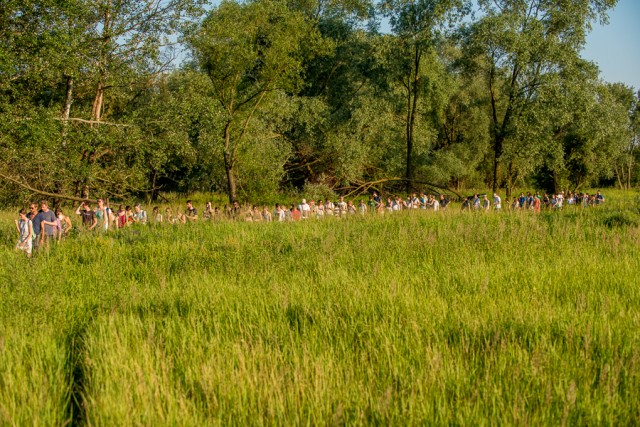
I use theatre as a way to explore the relationship between people, but more specifically the relationship between people acting and people watching. If you look at this on a more political level, for example Brexit, it becomes very interesting. As citizens, are we passive consumers, just going with what is offered to us, or are we active political bodies who are changing and influencing? And if so, how do we commit ourselves?
I think it is clear that people do have a desire to join in, to speak up and to be part of the dialogue which is taking place and not to just watch it from a distance. But it is also clear we don’t yet know how to do this. Is saying yes or no to a political referendum really taking action as political participant? The EU Referendum didn’t take peoples political potential seriously; it shouldn’t be about yes or no, it should be about the third option. If we stay in the EU what do we want it to be and how do we want it to change?
As a director, you have a reputation for pushing the formal structures of theatre to produce work which borders on the social/artistic research event. This is the case for many of the productions which have formed this year’s festival, particularly Building Conversations, which brings the spectator into the production. Which is also relevant to Brexit and the need for a conversation in-between the yes or no. Could you explain a little more about how you came to develop this series of productions and what you hope they will achieve?
It was three years ago in the summer of 2013 when we started developing this project around the idea of participation. I noticed around me that conversation had become a booming business; both at a grassroots level but also within top-down initiatives. For example, politicians wanting us to look after our sick relatives misuse this idea of participation to avoid having to deal with it themselves.
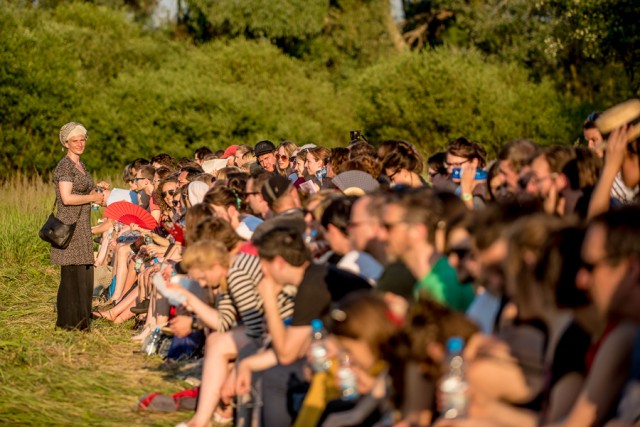
We had seen a lot of artistic projects that were dealing with participation, but it felt false, as the concept was always already defined, so the participator was just a person and not a collaborator. It was at this point that I wondered what the result would be if an artist asked a participator to take co-responsibility for the work, and it was from here that Building Conversations started to grow.
We held a 10-day public brainstorm at a festival in the Netherlands, which simply asked people to respond to the question: If we were to make a work together next year, what would it be? People didn’t feel there was a need to create new work as we already have so much, but the fact that it was being discussed was valuable to them. It was then that we started to explore conversation techniques and how we could invite audiences in and take responsibility for introducing them to new forums for communication.
As a spectator at your production Wasteland, which is set in an open field, I felt a real sense of helplessness in perhaps the same way as I might when I see terrible tragedies on the news; but because of the distance, there is nothing I can constructively do to help. What is it you want the audience to take away?
When watching Wasteland, the audience is unable to influence what they are witnessing, which I think is a situation we are constantly in. Like you say, you can watch the news but because of distance we cannot do anything. We know about Syria; we know our computers and phones are made by people who do not have good working conditions. We know so much, but what do we do with this information, how can we turn this into useful action which has some potential? We are in this state of helplessness constantly.
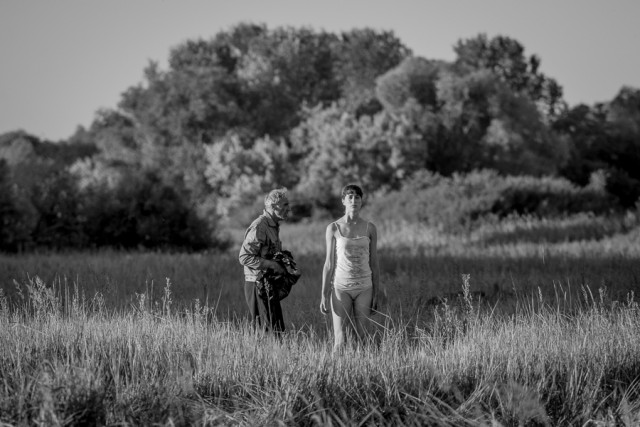
On the content of Wasteland, you see people who have stopped defending life. They take life as it comes and act like animals; they kill each other, but no one is taking responsibility; [it is] showing life without value. It questions if we should accept death and violence in our lives, while highlighting that if we don’t defend life it becomes without value. How do we accept death as part of life but still fight for life? It’s a difficult paradoxical situation we are all in.
We have already talked a little about Brexit and how Idiom speaks quite heavily about the issues behind what has recently happened in the UK. I wonder if you could talk a little further about your thoughts on this and how things can move forward?
I think it is really important that we stand opposite each other and we really share in direct dialogue that we do not agree. I do think it is important to acknowledge there are extreme sides, but to also think about the other questions about how we want to engage with one another in society, and if we want to be part of other societies. I think it is important to create a field where these two extreme voices can live together.
For example, if England plays against the Netherlands, you can want England to win but you have to realise that the game only happens when there are two sides. It’s not either or; both extremes are there and we have to acknowledge them and create a game — which is what democracy should be — where both of these voices are part of the dialogue.
It’s not about choosing one side which makes the Referendum bullshit; it should be about how we engage with Europe, as if you are out of Europe, you still have to have a relationship. What do the people want that to be?
Emma Sumner
Emma saw the Malta Festival between 17 – 28 June 2016
Read Emma’s Field Trip to last year’s festival here
Images: Wasteland, Comapagnie Dakar / Lotte van den Berg. Malta Festival, Poland. Photo courtesy Maciej Zakrzewski



